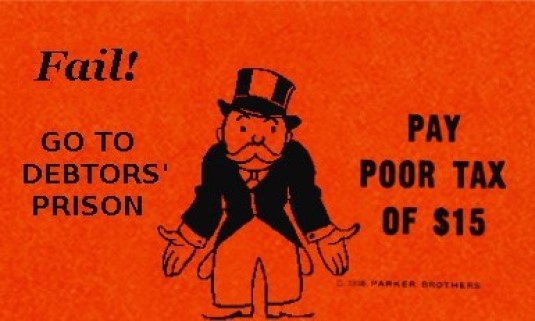
This is not a review by any means (here's one, and more on Papa Lazz here), but he does throw down a challenge to the work of Hardt and Negri long championed on this blog. First off, debt precedes exchange: in other words, economics is founded on the relationship between creditor and debtor. In neoliberalism, this power relation is naturalised via finance, overshadows everything, and is simultaneously constitutive of the production of subjectivities and economic production (also occurring at the same time and inseparable from one another). What does this mean for how different subject positions condition and connect with one another? The debt relation already enforces a compulsory entrepreneurship of the debtor, reproducing subordination and resistance between the subordinate proletarianised position this (unwittingly, ironically) engenders and the control/command of capital, but what about horizontal relationships? On this, Hardt and Negri are optimistic that the excess of social production haphazardly captured by the employer/employee relation and exploited for surplus value contributes to the "social store" of human capacities - the common - and forges new links, networks, ways of being and becoming, and the immanent potential of more resistance to capital. This can and does go awry as the subject positions and trajectories so generated can become self-contained, immutable identities akin to properties. What are the theoretical implications if we think about debt as constitutive of these processes too? It underpins the peculiar form of estrangement/alienation specific to immaterial labour and therefore supplies a satisfying explanation for it. This also suggests this is a tendency that will spontaneously occur in the absence of political struggle, as per Lenin's observations concerning the spontaneity of trade union consciousness. But does it have more subtle effects corrosive of solidarity too, rendering Negri's optimism null and void or, at best, naive?
These are just jottings, but is something I hope to think about in more depth in a side project working through the issues Mark Fisher alighted on in his (in)famous Vampire's Castle essay. One thing's for certain, I can see more Lazzarato in my future.
3 comments:
Debt is, above all, a political construction. The making of the indepbted Man is now at the *very* top of my to-read list. Thank you Phil.
I particularly look forward to tying Lazzarato's analysis of economics and cash-flow with his socio-economic modelling, which will certainly fasten the 'many', the 'few' and the economic principles to the mess we are currently living through as late capitalsim struggles for dear life.
I look forward to more Lazzarato from you soon.
These really are just jottings - you've covered an awful lot here, using, at times, fairly technical language that needs a bit of unpacking (for those who have not well versed in this particular canon)
For instance, what do you mean by 'entrepreneurship' in this context?
Entrepreneurship here refers to the self-as-entrepreneur as variously discussed in discussions about neoliberalism. Here, Lazzarato criticises Foucault's pioneering thoughts on this for not rooting the discussion in debt. To really simplify the argument, Papa Lazz suggests that the assumption of debt by someone inculcates a certain kind of thrifty entrepreneurship. Therefore our entrepreneurship is less a choice and more an obligation.
Post a Comment